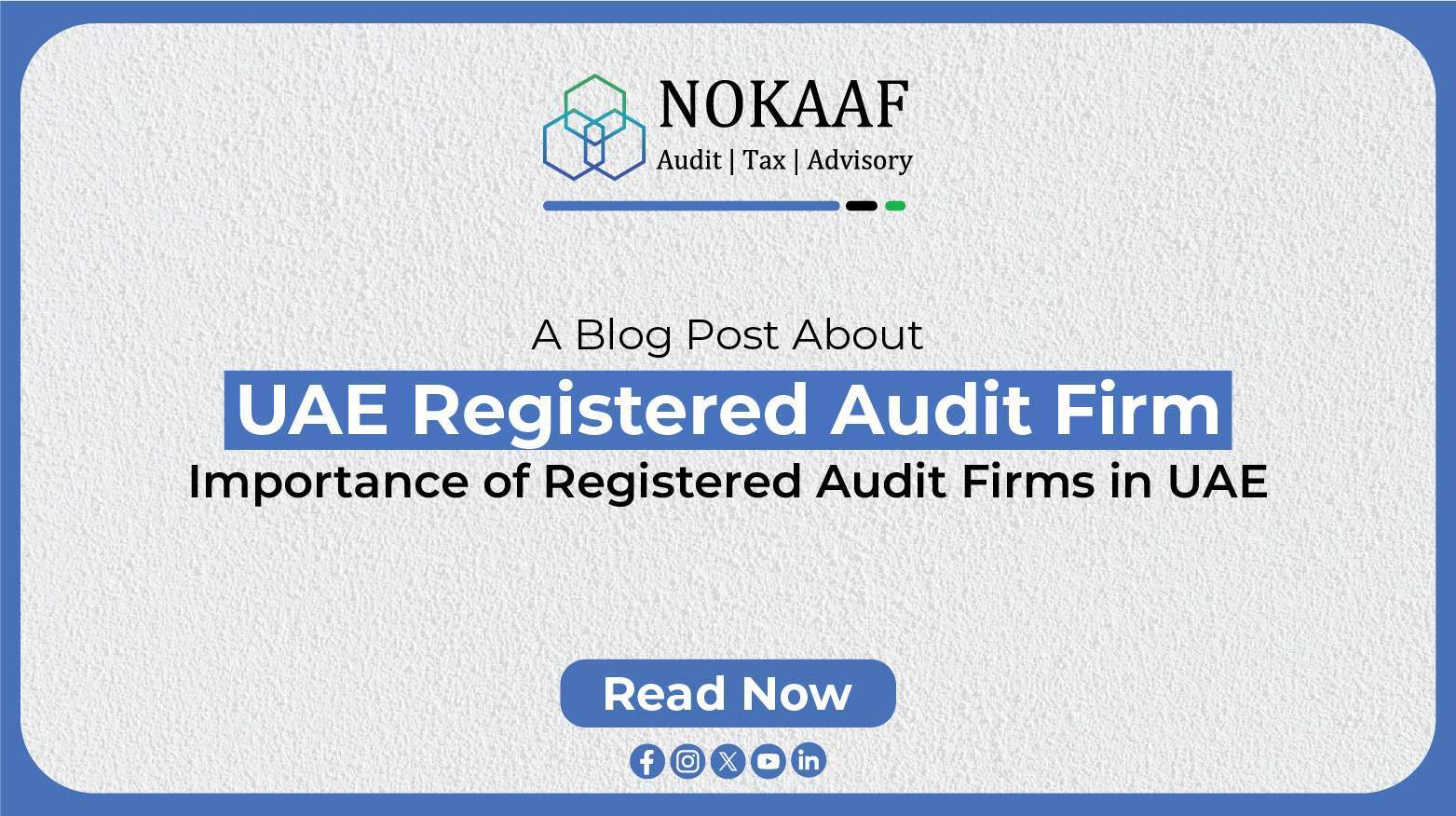UAE Registered Audit Firm: Navigating Business Assurance
In the fast-paced business environment of the United Arab Emirates (UAE), ensuring financial transparency and compliance is paramount. One crucial element in this process is choosing a reliable and registered audit firm. Let’s delve into the intricacies of UAE registered audit firms, their significance, and how businesses can benefit from their services.
Introduction
In a dynamic economic landscape like the UAE, where businesses are thriving, the need for robust financial oversight cannot be overstated. Auditing plays a pivotal role in ensuring that businesses adhere to regulatory standards, maintain financial integrity, and instill confidence among stakeholders.
What is a Registered Audit Firm in the UAE?
In essence, a registered audit firm in the UAE is a professional entity authorized by regulatory bodies to conduct audits. These firms play a crucial role in examining and verifying financial records, ensuring accuracy, and providing an independent evaluation of a company’s financial health. The oversight by regulatory bodies guarantees the professionalism and competence of these audit firms.
Key Requirements for Registration
For a firm to be recognized as a registered audit entity in the UAE, it must meet specific qualifications and criteria set by regulatory authorities. These requirements often include the presence of certified auditors, adherence to international auditing standards, and a commitment to ethical practices. Compliance with these standards is not only a regulatory necessity but also a testament to the firm’s commitment to excellence.
Benefits of Choosing a Registered Audit Firm
Opting for a registered audit firm in the UAE comes with a myriad of benefits. Beyond the legal requirements, businesses gain assurance of expertise, professionalism, and adherence to industry best practices. This not only safeguards the business but also enhances its credibility in the eyes of investors, lenders, and other stakeholders.
Understanding the Audit Process
The audit process involves a meticulous examination of financial statements, internal controls, and compliance with accounting principles. Transparency and accuracy are paramount throughout this process, as they contribute to the overall reliability of financial reporting. Businesses engaging with registered audit firms can expect a thorough and systematic approach to their financial assessments.
Role of a Registered Auditor
Registered auditors in the UAE play a crucial role in upholding the integrity of the audit process. Their responsibilities extend beyond number-crunching to maintaining independence, objectivity, and ethical conduct. This ensures that the audit results are unbiased and provide a true reflection of a company’s financial standing.
Industries that Require Auditing
Certain industries in the UAE, such as finance, healthcare, and energy, have specific regulatory requirements necessitating regular audits. Registered audit firms tailor their services to meet the unique needs of each industry, providing specialized expertise that goes beyond a one-size-fits-all approach.
How to Select the Right Audit Firm
Choosing the right registered audit firm is a critical decision for businesses. Factors such as industry experience, reputation, and a track record of successful audits should be carefully considered. Real-life examples and case studies can offer valuable insights into the effectiveness of a potential audit partner.
Common Challenges Faced by Auditors
Despite their expertise, auditors encounter various challenges during the auditing process. This section explores the hurdles auditors may face and provides strategies for overcoming them. From complex financial structures to evolving regulatory landscapes, auditors must navigate these challenges to deliver accurate and reliable results.
Recent Changes in Audit Regulations
The regulatory landscape in the UAE is dynamic, with periodic updates and modifications. Businesses need to stay informed about these changes and understand their implications. This section sheds light on recent updates in audit regulations and their potential impact on businesses and auditors alike.
Audit Technology Advancements
The integration of technology in audit practices has transformed the way audits are conducted. From data analytics to artificial intelligence, audit firms are leveraging technology to enhance efficiency and accuracy. This section explores the benefits and challenges associated with these technological advancements.
Tips for Businesses Undergoing an Audit
Preparation is key for businesses undergoing an audit. This section provides practical tips for companies to prepare for the auditing process effectively. From organizing financial records to open communication with auditors, these tips ensure a smoother audit experience.
Future Trends in Audit Practices
As technology continues to evolve, so does the landscape of auditing. This section explores emerging trends in audit practices, offering a glimpse into the future. Businesses are encouraged to stay ahead of the curve, anticipating changes and embracing innovative audit approaches.
Conclusion
In conclusion, the choice of a registered audit firm in the UAE is a strategic decision that goes beyond mere compliance. It is an investment in the financial health and credibility of a business. From navigating industry-specific challenges to embracing technological advancements, businesses partnering with registered audit firms position themselves for long-term success.
FAQs (Frequently Asked Questions)
How often should a business in the UAE undergo an audit?
The frequency of audits depends on the type of business and regulatory requirements. Generally, businesses undergo annual audits, but some may require more frequent assessments.
What happens if a business fails an audit in the UAE?
Failing an audit may lead to legal consequences and damage the business’s reputation. It’s crucial for businesses to address any issues identified during the audit promptly.
Can small businesses benefit from hiring a registered audit firm?
Absolutely. Registered audit firms offer tailored services suitable for businesses of all sizes. Their expertise helps small businesses maintain financial integrity and credibility.
How long does the audit process typically take?
The duration of the audit process varies depending on the complexity of the business and the scope of the audit. It can range from a few weeks to several months.
What should businesses look for when selecting an audit firm?
Businesses should consider factors such as industry experience, reputation, expertise, and compatibility with their organizational culture when selecting an audit firm.





